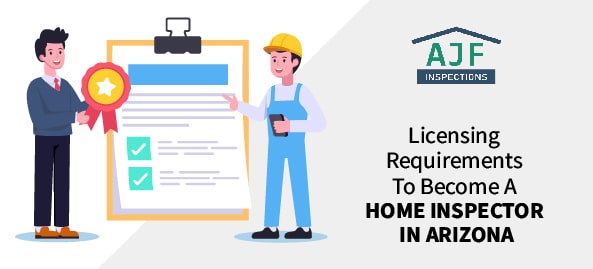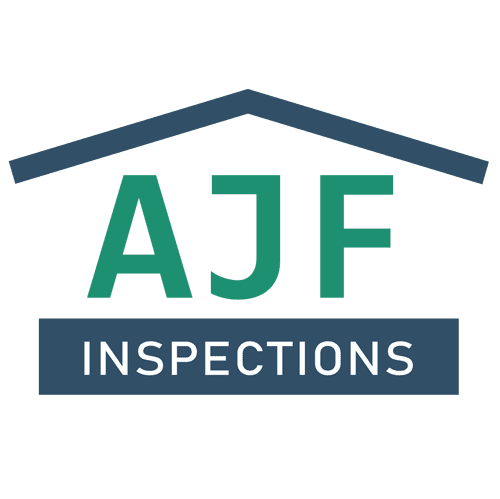
Licensing Requirements to Become a Home Inspector in Arizona
To protect the quality and safety of properties, Arizona requires applicants for home inspection licenses to fulfill essential criteria. The need for knowledgeable inspectors is more significant than ever due to the evolving real estate market. For those who are wondering how to become a home inspector in Arizona, this blog seeks to give readers insight into the licensing procedures set by the state of Arizona. We will explore the numerous aspects that define this career, from the fundamental requirements to the required educational pathways. The first vital step that you need to take for a successful career as a dependable home inspector is understanding the licensing procedure in Arizona.
Fundamental Requirements to Become a Licensed Home Inspector
Arizona’s Arizona Board of Technical Registration (AZBTR) has established standards for individuals who want to work as home inspectors. Best home inspectors in Phoenix are experts that examine the safety and condition of residential houses and give their clients written reports. Furthermore, home inspectors might work for home inspection firms or independently.
You must meet the following steps to be eligible for an Arizona home inspector license:
- The Arizona Department of Public Safety can provide a fingerprint clearance card. This document, which costs $67, certifies your identification and criminal record. Applications can be submitted online or by mail; the processing time is up to 8 weeks.
- Complete 84 hours of classroom instruction from a recognized home inspector education provider are required. In addition to the technical aspects of a home inspection, the training must address the AZBTR standards of practice, ethics, and report writing. Depending on the provider, the cost of the training can range from $1,000 to $2,000.
- You must pass the National Home Inspector Examination (NHIE) by the Examination Board of Professional Home Inspectors (EBPHI). The NHIE is a four-hour computer-based test that has 200 multiple-choice questions. The test covers the fundamental knowledge and abilities needed for conducting home inspections. You can take the test at any Pearson VUE testing facility in Arizona or nationwide for $225. You must score at least 500 out of 800 to pass the test.
- You must complete 30 parallel inspections with a licensed and certified home inspector Phoenix. A parallel inspection is done on a house while a supervising home inspector is there to check and approve your work. You must locate a qualified house inspector to mentor and certify your parallel inspections. Additionally, you must pay the mentor’s fee, which varies based on the inspector and the house.
- Send an application for a license and payment to the AZBTR. You must complete an application form and include copies of your training certificate, NHIE score report, fingerprint clearance card, and parallel inspection record.
If you enjoy inspecting properties and assisting individuals in making informed decisions, becoming a home inspector in Arizona might be a satisfying career choice. But it also necessitates extensive testing, training, and expenditure. So, before choosing this course of action, consider the advantages and disadvantages thoroughly.
Required Educational Pathways
One of the primary prerequisites for obtaining a home inspector license in Arizona is 84 hours of classroom instruction from a recognized supplier of home inspector education. This instruction is intended to prepare you for the National Home Inspector Examination (NHIE) and the parallel inspections you must do while working under the guidance of a certified home inspector Phoenix.
You can select from various educational options to finish the necessary training. Among the most common are:
Online courses
You can study at your own pace and according to your schedule, making them handy. Online courses, however, might not offer enough practical experience or opportunities for interaction with peers and teachers. You also need a computer that complies with the course’s technical requirements and a dependable internet connection. Depending on the provider and the course’s quality, online courses can cost anywhere from $500 to $1,500.
Classroom courses
You attend lessons at a set location and time, making them more formal and structured. Classroom instruction may offer additional chances for hands-on activities and feedback from teachers and classmates. However, because you must travel to the class site and adhere to the class schedule, classroom courses might not meet your availability or preferences. Depending on the provider and the course length, classroom courses may cost between $1,000 and $2,000.
Hybrid courses
Hybrid courses combine online and in-person learning, requiring you to complete specific modules online and others in person. You may use the advantages of in-person education and the convenience of online learning with hybrid courses. Hybrid courses could also have some drawbacks, such as technical issues, scheduling conflicts, and higher costs. A hybrid course typically costs from $1,500 to $2,500. The price varies depending on the provider and how much time is spent in the classroom versus online during the course.
Regardless of your educational path, it is critical to ensure that the course provider has Arizona Board of Technical Registration (AZBTR) approval. Ensure the course covers all of the topics included in the AZBTR standards of practice. You must submit a certificate of completion along with your application and should finish the course no later than one year after applying for your license.
A home inspector license in Arizona must be obtained by completing 84 hours of classroom training. Thus, you should carefully research and compare several educational courses before selecting the one that best meets your requirements, objectives, and financial situation.
Common Pitfalls and Mistakes to Avoid During the Licensing Process
Being a licensed home inspector in Arizona may be rewarding and challenging at the same time. To ensure a smooth journey, the best home inspectors in Phoenix should be aware of typical pitfalls and mistakes that impede their licensing process. Below are some of the most common pitfalls to avoid during the licensing process:
- Underestimating the value of formal education is a common mistake. An application for a license may be delayed or rejected entirely if it is not submitted within the required hours after completing a recognized training program. Similarly, it can be harmful to overlook the need for practical experience. Best home inspectors in Phoenix receive valuable training to enable them to conduct assessments efficiently in the field.
- Not properly preparing for exams is another pitfall. Failure to adequately prepare for the many topics covered in the written and practical exams can fail to achieve the required passing marks. Additionally, some candidates blunder by neglecting their post-licensing duties for continuous education. Not only is it necessary, but staying up to date with changing industry norms and practices also helps you keep your professional reputation.
- Neglecting the ethical component of the profession is a serious mistake. Discipline that puts one’s license in danger can result from disregarding the set code of conduct.
- Last but not least, delaying finishing paperwork, submitting applications, and paying fees might cause unneeded delays.
Becoming a licensed home inspector in Arizona is a lot of work, as discussed above. So you can imagine how tough it would be to find an experienced home inspector. But fret not, AJF Engineering has you covered. Experienced home inspectors at AJF Engineering offer comprehensive home inspection services to buyers , sellers , home wellness and commercial inspection services so you can be confident in your deals.
